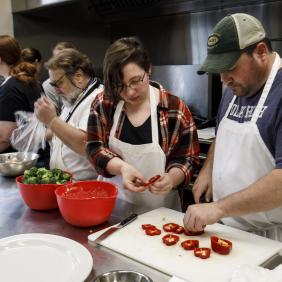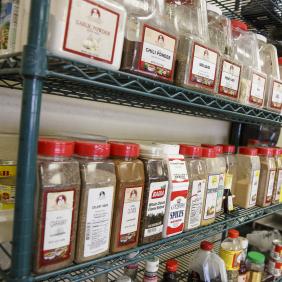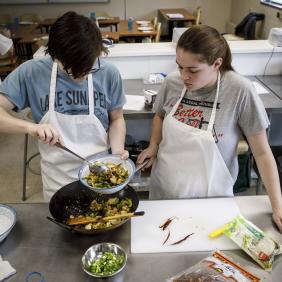The nutrition science major prepares students to pursue a graduate degree to become a Registered Dietitian Nutritionist (RDN) or to begin careers in community nutrition or foodservice management. These majors promote health and well-being and help people in clinical, sports, and public health settings.
Graduates with a degree in Nutrition Science are able to pursue graduate studies or start careers such as:
The nutrition science major is a four-year program promoting health, managing disease, and optimizing of quality of life. Courses focus on science, nutrition, the human body, and psychology with advanced course work in medical nutrition therapy.
The program provides hands-on labs and experiential learning in food preparation, food systems, sustainable agriculture, research, and management. Campus offers orchards, gardens, green houses, hydroponic and aquaponics facilities, and 1,000 acres of crop and animal production. Job growth for nutrition majors is strong.
-
Registered dietitian-nutritionist (master’s degree required)
-
Public health Educator
-
Food service manager
-
Food science careers
-
Community health worker
-
WIC Women, Infants, and Children
-
School food service
-
Author (books, magazine articles, nutrition education materials)
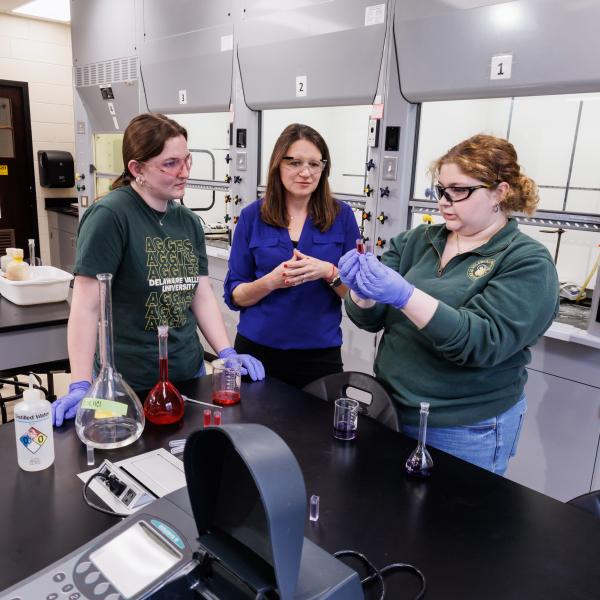
See what "hands-on" means in Dr. Langston's chemistry labs.
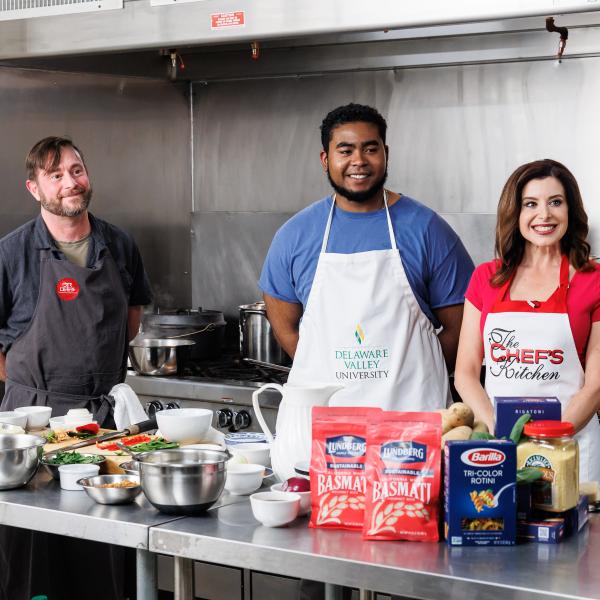
Four students with a passion in the food industry joined renowned Chef’s, Michael Solomonov, Lee Chizmar, Ryan Zellner, and Anthony Bonett for an episode of The Chef’s Kitchen College Campus Cooking, which aired on NBC10, and several other networks, reaching over 78 million households. The show provides tips and techniques from the country's most exclusive restaurants and features award-winning chefs, notable bakers, and the world's most-learned sommeliers.
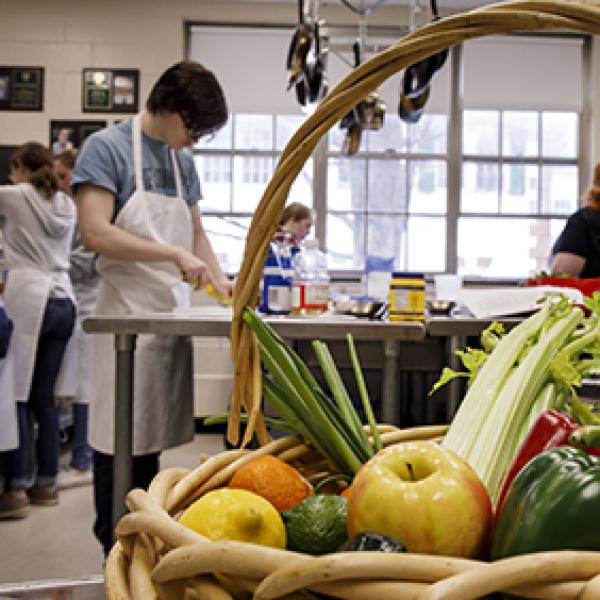
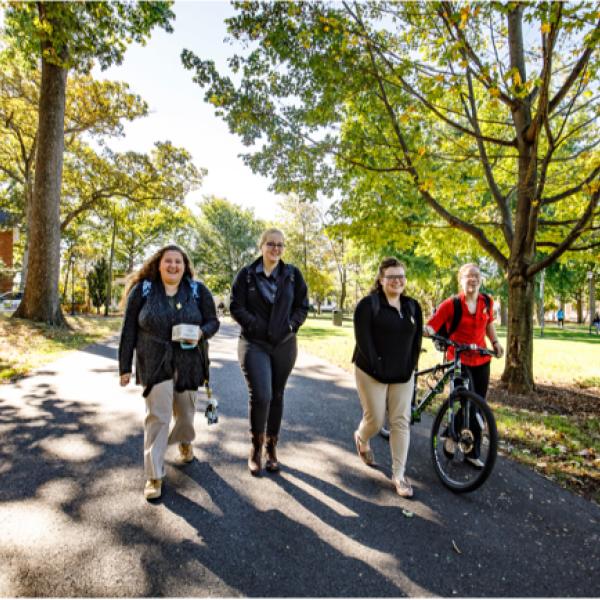

Delaware Valley University was more than just a university, it was my home away from home. DelVal fully prepared me for the future. I will be forever grateful for the excellent education, close relationships, and core values I have gained from this school.
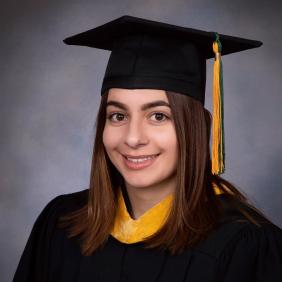
Nutrition Science AT-A-GLANCE
Delaware Valley University will prepare students for various careers in the field with a diverse course offering.
Sample Course:
- Biology
- Chemistry
- Introduction to Food Science and Technology and Lab
- Principles of Professional Cooking and Lab
- Sanitation Management
- Comparative Anatomy and Lab
- Biochemistry and Lab
- Macronutrients, Vitamins, and Minerals
- General Microbiology and Lab
- Human Physiology and Lab
- Foodservice Operations
- Food Chemistry and Lab
- Statistics for Science
- Medical Nutrition I
- Medical Nutrition II
Related Programs:
- Food Science
Possible Minors:
- Agribusiness
- Biochemistry
- Biotechnology (for Food Science and Food Technology Specializations)
- Business Administration
- Communication
- Food Systems
- One Health Communication
- Policy Studies
- Writing

The One Health Communication minor provides students with the opportunity to bridge the study of writing and rhetoric with the sciences. Students who complete this minor will enhance their analytical and communication skills related to sciences including the University’s pre-veterinary, pre-health, STEM and science programs. They will gain skills for effectively communicating science topics to non-scientists and the general public.
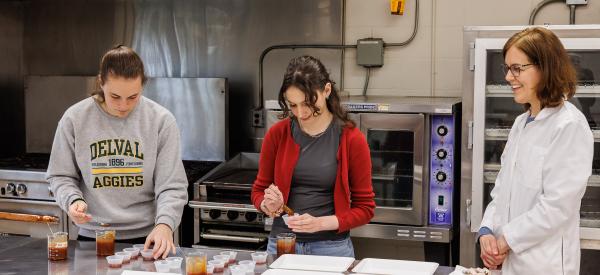

The Experience360 Program gives you the opportunity to apply classroom lessons to real-world activities like internships, career exploration experiences, student research, study abroad, leadership development, and more.
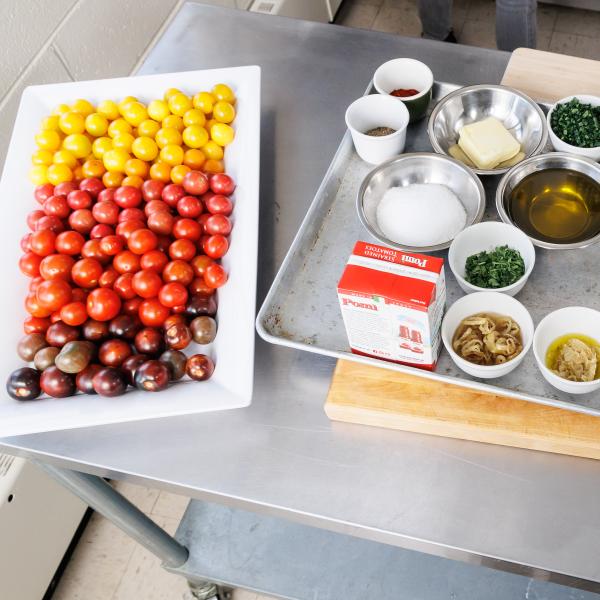
The Food Industry Club is a student chapter of the Institute of Food Technologists.
Office Location: Mandell 109
POV of Nutrition Science Students


